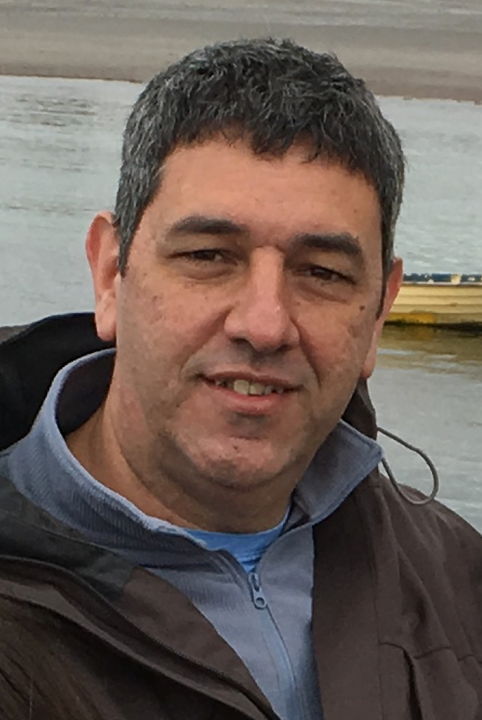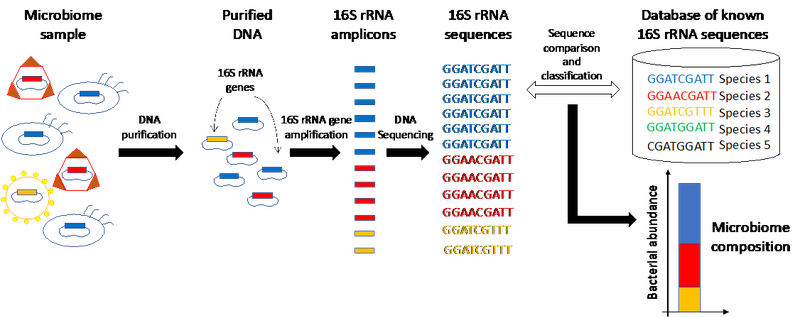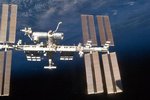Research brief: Characterizing the astronaut microbiome
 Dr. Hernan Lorenzi
Dr. Hernan Lorenzi
Microbes: they're everywhere. They're on and in our bodies, they cover the food we eat, and yes, they're even on the ISS. On Earth, we most often live in harmony with the microbial community that surrounds us, but does that hold true in space?
Dr. Hernan Lorenzi, an assistant professor at the J. Craig Venter Institute, is one of the scientists who is aiming to find out. His research group, which uses genetic sequencing to characterize microbial communities, recently wrapped up an ISS study asking how space affects the way microbes colonize our bodies. Dr. Lorenzi joins us here to explain the microbial changes the astronauts experienced and discuss the implications for human health.
Guest post by ISS researcher Dr. Hernan Lorenzi
What was the purpose of this study?
Humans are hosts to trillions of microorganisms that live in and on the body. These microbial communities are known as the human microbiome. The microbiome plays an essential role in human health. Among other functions, it stimulates the immune system, helps us digest complex nutrients, and synthesizes essential vitamins. During a space mission, astronauts are exposed to many stressful situations that could affect their microbiota. Therefore, the goal of this study was to investigate whether space travel affects the microbial composition of the crew microbiome, potentially posing a risk to astronauts’ health.
What exactly did you do?
We asked astronauts to collect microbiome samples from their skin, nose, tongue and gut (feces) using sterile swabs at several time points before, during and after a six-month mission to the ISS. Samples were sent to our lab on Earth for further analyses. In the lab, our team extracted the DNA from each sample and amplified and sequenced the 16S ribosomal RNA (rRNA) gene, which is present in all microbial organisms. Then, sequencing reads from each sample were compared to a database of known 16S rRNA genes to determine the identity and abundance of the microorganisms that were present in the samples. Astronauts also collected samples from their blood to monitor changes in their immune system.

A graphical representation of our study. DNA was extracted from microbiome samples, and 16S rRNA gene sequencing was used to identify the species found in each sample.
What did you find?
The analysis of microbiome samples showed that the microbiome of the crew significantly changes during a mission to the ISS. On the skin, our team found that the abundance of a group of bacteria named proteobacteria is reduced in space. Notably, some proteobacteria species have been found to play a protective role against skin hypersensitivity reactions (e.g., rashes), which are among the most frequent symptoms astronauts experience in space.
We also found that the gut microbiome becomes more similar across astronauts in space, even when they do not share time together in the ISS. We think a potential explanation of this could be that in space, astronauts eat more similar diets than they do on Earth. Also, we identified some gut bacteria whose abundance correlated with changes in the astronauts’ immune response. These results suggested that shifts in the composition of the gut microbiome during spaceflight may be playing a role in some alterations of the astronauts’ immune response, although this is just speculation for now.
What's next?
The results of the astronauts’ microbiome project laid the foundation for a new study to investigate if it is possible to prevent space-associated changes in the crew immune response and gut microbiome through the administration of an improved diet. An initial pilot study on volunteers spending 43 days in a ground-based simulator of a space mission has shown some promising results. Now, scientists are testing the same enriched diet on astronauts spending six months in the ISS. We expect that a healthier diet will help crew members to deal better with mission stressors and reduce the risks of developing diseases in space.Inspired by this research? Have your own idea for a follow-up study? Submit it to Genes in Space! Application deadline: May 9, 2020.


